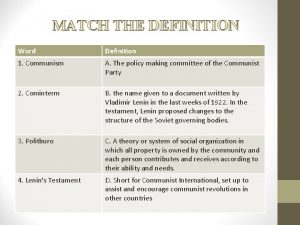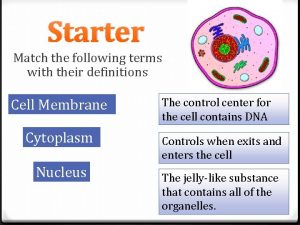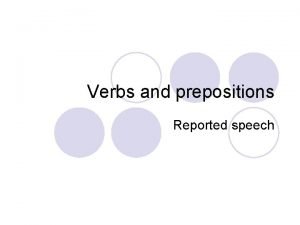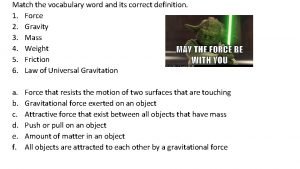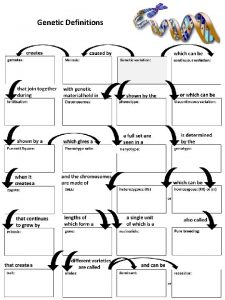Definitions of Power Match the following types of





- Slides: 5

Definitions of Power Match the following types of power with their definitions: Practical Place in a hierarchy, instrumental power, backed by law. Knowledge and ideas Individual personality, nurturing and caring. Position Access to information and understanding, ability to influence people with it. Personal Physical actions, violence, skill, money, services.

Power in Politics What common patterns would you expect to see in the language of power in political speeches? Listen to the following speeches – what techniques can you identify within them? - Are they powerful speeches? - Which speech do you find the most effective? Power can not only be shown through a speaker’s choice of language but through the way in which they deliver these words.

Political Speeches Read through the extracts and identify anything that the speeches have in common. - Do any of the speeches use emotive language? - Do they use triplets? - Why and when is alliteration used? - 1 st, 2 nd, 3 rd person used and why? - Are there any semantic fields used? If so, of what? - How are short sentences used? - Are there any biblical references used? Create a table of similarities and differences between the texts.

Adverbial Clauses ‘I saw the movie before I left for Paris. ’ - This adverb clause contains a subject (I) and a verb (left). It is introduced by ‘before’ so it is a dependent clause. Place Where? Wherever there are computers, there is Microsoftware. Time When? After the fruit is harvested, it is sold at the market. Cause Why? (What cause this? ) I didn’t call her because I’m shy. Purpose Why? (What was the reason for doing this? ) She took a computer course so that she could get a better job. Concession Why is this unexpected? Although he has a Master’s degree, he works as a store clerk. Condition Under what conditions? If you save your money, you will be able to go to university.

Adverb Clauses Most adverb clauses can be recognised because they are introduced by subordinating conjunctions. - after, before, until, while, because, since, as, so that, in order that, if, unless, whether, though, although, even though. Can you identify any adverb clauses in the speeches? Imagine you are Prime Minister and you have been asked to respond to the issue of Euthanasia. Write the opening to a powerful speech where you argue for or against this topic.
